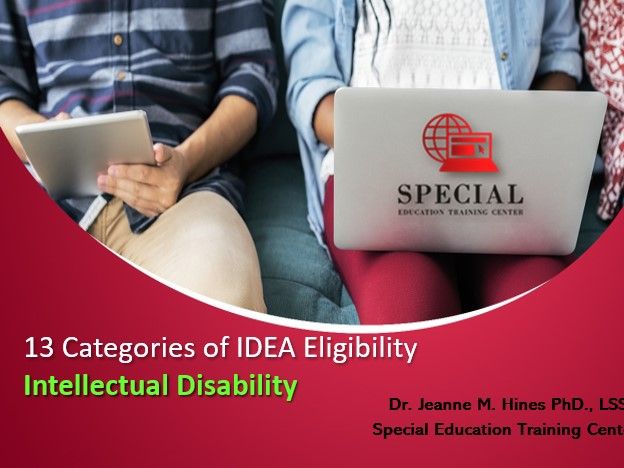Intellectual
Disability: 13 Categories of IDEA Eligibility
The eLearning course, “Intellectual
Disability: 13 Categories of IDEA Eligibility “will
focus on the 13 eligibilities for special education services, and the
Individuals with Disabilities Educational Act (IDEA). Intellectual disability
(ID) refers to a condition characterized by limitations in cognitive abilities
and essential skills, including communication, social interaction, and
self-care. These challenges may lead to a child developing and learning at a
slower or atypical pace compared to their peers. Intellectual disability can
arise at any point before the age of 18, including during prenatal development.
It is recognized as the most prevalent form of developmental disability. The
American Association of Intellectual and Developmental Disabilities outlines
three criteria for diagnosing intellectual disability: an IQ score below 70-75,
significant limitations in two or more adaptive areas necessary for community
living, such as communication and self-care, and the onset of these conditions
prior to the age of 18.
LEARNING OUTCOMES
Discuss Individuals with Disabilities Educational Act (IDEA)
Identify the 13 categories of IDEA eligibility
Describe the purpose of Part B of IDEA
Evaluate Part C of IDEA
Define Intellectual Disability (ID)
Outline some of the common causes of an ID
Explain some of the misconceptions associated with an intellectual disability
-
68 learners
Enrolled -
4 hours
Video duration -
27 hours
Course duration -
4 Ebooks
Free of charge

